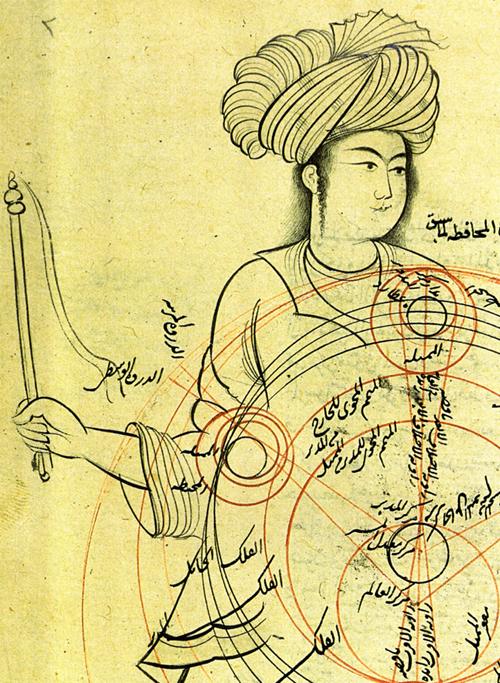|
Amin Al-Din Rashid Al-Din Vatvat
Amin al-Din Rashid al-Din Vatvat was a 13th-century Persian physician. The National Library of Medicine possesses an untitled Persian treatise on general preparation of food and drink which gives the author as Amin al-Din Rashid Vatvat and specifies that it was composed for Arghun Khan who ruled from 1284 to 1291CE. A much shorter treatise on the same topic, also written by the order of Arghun Khan, is preserved in another untitled manuscript where the author is given as Amin al-Din Rashid al-Din Otaji. A Persian tabular treatise on the same topic written by Amin al-Din Otaji and dedicated to Mahmud Ghazan Khan (who ruled from 1295 to 1304CE) is preserved in two copies. For both these treatises see C.A. Storey, ''Persian Literature: A Bio-Bibliographical Survey'', volume II, part 2: E. Medicine (London: Royal Asiatic Society, 1971), p. 217 no. 373. The treatise now at the National Library of Medicine, with author given as Amin al-Din Rashid Vatvat, is presumably by the sa ... [...More Info...] [...Related Items...] OR: [Wikipedia] [Google] [Baidu] |
National Library Of Medicine
The United States National Library of Medicine (NLM), operated by the United States federal government, is the world's largest medical library. Located in Bethesda, Maryland, the NLM is an institute within the National Institutes of Health. Its collections include more than seven million books, journals, technical reports, manuscripts, microfilms, photographs, and images on medicine and related sciences, including some of the world's oldest and rarest works. The current director of the NLM is Patricia Flatley Brennan.National Library of Medicine Welcomes New Director Dr. Patricia Flatley Brennan . ''National Library of Medicine''. August 15, 2016. History The precursor o ...[...More Info...] [...Related Items...] OR: [Wikipedia] [Google] [Baidu] |
Rashid Al-Din Muhammad Al-Umari Vatvat
Rashid al-Din Muhammad ibn Muhammad ibn Abd Jalil al-Umari ( fa, رشیدالدین محمد بن محمد بن عبد جلیل العمری; 1088/9 – 1182/3), better known by his nickname of Vatvat (; "the swallow"), was a Persian secretary, poet, philologist in the Khwarazmian Empire. In addition to being a prolific author in Arabic and Persian, he also occupied high-ranking offices, serving as the chief secretary and propagandist under the Khwarazmshahs Atsiz () and Il-Arslan (). Although Vatvat spent most of his life at the Khwarazmian capital of Gurganj, he was himself a native of Balkh or Bukhara. He mainly composed panegyric ''qasidehs'', but his rhetorical work ''Hadā'iq al-sihr fi daqa'iq al-shi'r'' ("Magic Gardens of the Niceties of Poetry") is in prose. Biography Vatvat was born in 1088/9 in either the city of Balkh or Bukhara, to a Sunni Persian family, which claimed descent from the second Caliph Omar (). Vatvat was educated at a Nizamiya ''madrasa'' in Balkh, ... [...More Info...] [...Related Items...] OR: [Wikipedia] [Google] [Baidu] |
Court Physician
A court is any person or institution, often as a government institution, with the authority to Adjudication, adjudicate legal disputes between Party (law), parties and carry out the administration of justice in Civil law (common law), civil, Criminal law, criminal, and Administrative law, administrative matters in accordance with the rule of law. In both common law and civil law (legal system), civil law legal systems, courts are the central means for dispute resolution, and it is generally understood that all people have an ability to bring their claims before a court. Similarly, the Rights of the accused, rights of those accused of a crime include the right to present a Criminal defense, defense before a court. The system of courts that interprets and applies the law is collectively known as the judiciary. The place where a court sits is known as a Venue (law), venue. The room where court proceedings occur is known as a courtroom, and the building as a courthouse; court facil ... [...More Info...] [...Related Items...] OR: [Wikipedia] [Google] [Baidu] |
List Of Iranian Scientists
The following is a non-comprehensive list of Iranian scientists, engineers, and scholars who lived from antiquity up until the beginning of the modern age. For the modern era, see List of contemporary Iranian scientists, scholars, and engineers. For mathematicians of any era, see List of Iranian mathematicians. (A person may appear on two lists, e.g. Abū Ja'far al-Khāzin.) A * Abdul Qadir Gilani (12th century) theologian and philosopher * Abu al-Qasim Muqane'i (10th century) physician * Abu Dawood (c. 817–889), Islamic scholar * Abu Hanifa (699–767), Islamic scholar * Abu Said Gorgani (10th century) * 'Adud al-Dawla (936–983), scientific patron * Ahmad ibn Farrokh (12th century), physician * Ahmad ibn 'Imad al-Din (11th century), physician and chemist * Alavi Shirazi (1670–1747), royal physician to Mughal Empire of South Asia * Amuli, Muhammad ibn Mahmud (c. 1300–1352), physician * Abū Ja'far al-Khāzin (900–971), mathematician and astronomer * Ansari, K ... [...More Info...] [...Related Items...] OR: [Wikipedia] [Google] [Baidu] |

